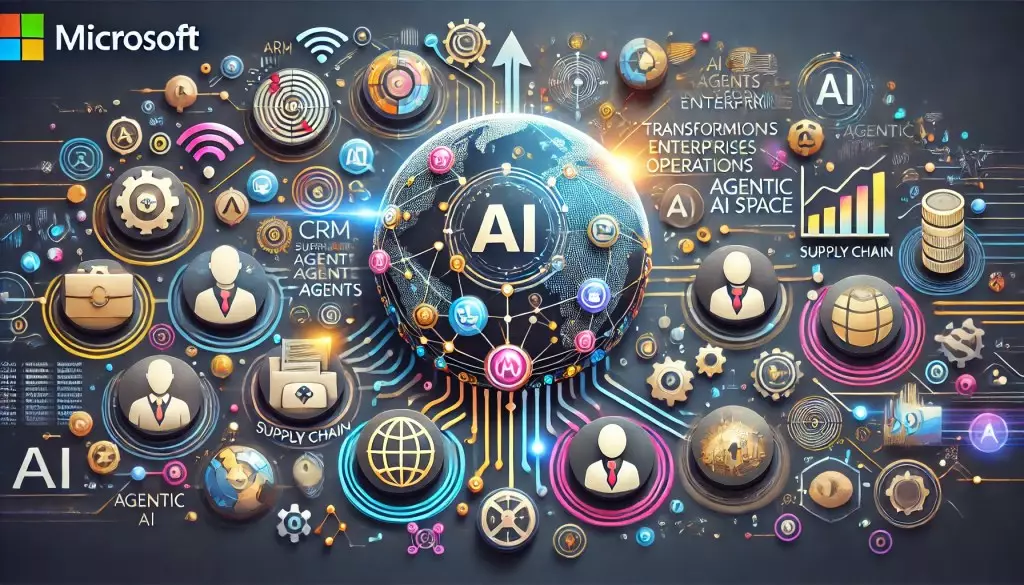At the recent Ignite 2024 conference, Microsoft unleashed a wave of excitement by introducing a suite of 10 autonomous AI agents tailored for enterprise applications. This bold declaration positions Microsoft at the forefront of the rapidly evolving landscape of AI technologies. With these agents, Microsoft asserts that they have reached a level of maturity not yet achieved by their competitors. By focusing on essential enterprise functions—such as customer relationship management (CRM), supply chain logistics, and financial reconciliation—Microsoft has created a robust framework that encourages productivity and innovation.
A standout feature of Microsoft’s AI agents is their pre-built nature, designed to handle specific tasks right out of the box. Unlike the traditional AI toolkits that require extensive customization and adaptation, these agents allow enterprises to streamline operations almost immediately. The innovation extends further with Microsoft’s expansive agent ecosystem, which boasts approximately 1,400 third-party connectors, thereby enriching its versatility. Additionally, the support for over 1,800 large language models (LLMs) highlights Microsoft’s commitment to providing a comprehensive toolbox for organizations exploring AI integrations.
The scale of adoption is a telling factor in assessing the success of this initiative. Microsoft reports that around 100,000 organizations are currently engaged in creating or refining their AI agents—a staggering figure compared to its competitors. In this competitive environment, the adoption rates are not just increasing; they are reportedly doubling each quarter, solidifying Microsoft’s formidable presence in the enterprise AI arena.
Implications for Enterprise Workflows
The implications of the introduction of these AI agents are profound. As I discussed in a collaborative video series with generative AI expert Sam Witteveen, the maturation of enterprise AI technologies is ushering in an era where theoretical discussions are being supplanted by practical applications. By leveraging the ease of deployment and functionality of these pre-configured agents, companies can drastically alter how they manage workflows. Tasks such as qualifying sales leads or optimizing supply chains no longer necessitate intricate setups, allowing businesses to adapt rapidly in a competitive marketplace.
Furthermore, Microsoft’s strategic positioning as the leader in agentic AI sets it apart from rivals like Salesforce, Google, and AWS. By capitalizing on its extensive ecosystem of productivity applications, Microsoft is poised to offer unparalleled, enterprise-grade solutions at scale. The targeted capabilities of its AI agents challenge established players and startups alike, compelling them to rethink their strategies to maintain relevance in a landscape increasingly dominated by Microsoft.
This move by Microsoft is not just a leap forward in technology; it is a redefinition of competition within the AI space. As it empowers businesses to implement intelligent agents that handle intricate tasks, Microsoft’s agents pose a challenge to niche startups that have historically excelled in providing singular solutions. The introduction of these agents could catalyze a shift in market dynamics, compelling smaller players to innovate or risk losing their foothold.
A key aspect of this transformation lies in Microsoft’s evolving pricing strategy. The shift from a “per token” pricing model to one based on “per message” or “per outcome” signifies a new emphasis on value creation rather than mere output quantity. This signals a recognition that organizations are seeking more than just the raw capabilities of language models; they desire solutions that directly contribute to achieving business objectives.
Looking Forward
Despite Microsoft’s robust lead, it is essential to acknowledge that competitors such as Google and AWS are continually advancing their offerings. As discussed in our video series, these companies are not standing idly by; they are poised to challenge Microsoft’s dominance with their own innovations and unique propositions. The ongoing competition will push the boundaries of what is possible with AI, benefiting enterprises in the long run.
Microsoft’s launch of autonomous AI agents at Ignite 2024 marks a significant milestone in the journey toward fully integrated AI solutions for enterprises. This innovation not only emphasizes the company’s leadership capabilities in agentic AI but also sets the stage for a new competitive landscape where agility and rapid adaptation become paramount. As organizations embrace these tools, the transformation of their workflows could lead to increased efficiency and productivity, driving an exciting future for AI in the business realm.

